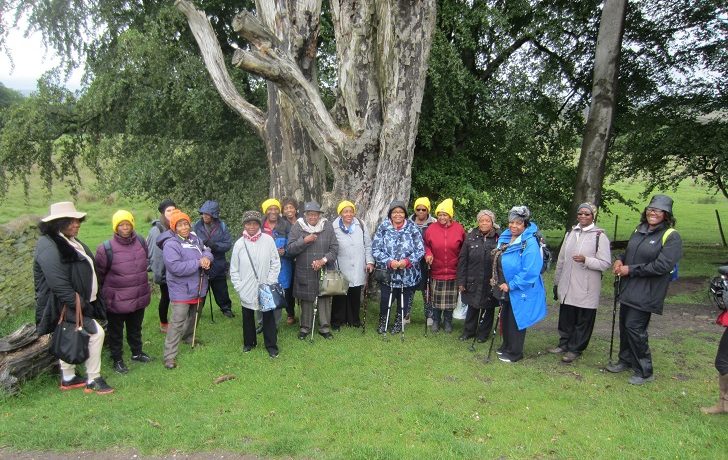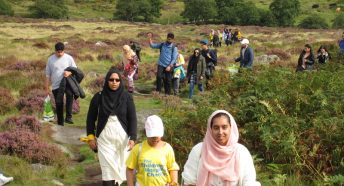A learning curve for the countryside
In October 2020, to mark Black History Month, we shared a series of pieces shining a light on Black people’s connections to the countryside and heard from the people making history in this tumultuous year – from planting trees to creating walking groups, all leaving behind a rich legacy for landscapes and communities.
Sharing stories and insights from Black people during this Black History Month has been a privilege – and a chance to listen and take stock. Our CEO, Crispin Truman, reflects here on the lessons we need to learn.
Hosting these contributions has given us at CPRE another opportunity to listen to people like Maxwell Ayamba, who are working with us to demonstrate practical ways we can work towards our goal of ‘a countryside for all’.
I’d like to thank Maxwell for his honest and constructive words and his consistent readiness to talk to CPRE as we develop our thinking in this area.
Gaining a deeper understanding of others’ experiences can help bring about profound change. I hope that we’ll look back on 2020 as a turning point for CPRE’s work to ensure that a far more diverse range of people engage with, understand and enjoy the countryside – and its many benefits for health and wellbeing.
Time for the sector to step up
Everyone within the environmental sector must accept that we have not yet done enough to make that ambition a reality – either by promoting diversity or supporting the groups and individuals already working on the issue.
We must start by addressing the issue within our own organisations, particularly as our sector is one of the least diverse in terms of the people it employs.
Our lack of first-hand knowledge means that CPRE is very much in listening mode. For the past year, we’ve been learning from experts who have faced – and overcome – racial discrimination when visiting rural England.
We’ve heard how individual instances of abuse, hostility or discomfort ripple through wider communities, creating a cultural barrier – the belief that the countryside is ‘an exclusive, mainly white, mainly middle-class club’, as the Glover report on landscapes put it.
Thankfully, many of those we’ve spoken with are already tackling the problem, through outreach projects and partnerships introducing people of colour to the great outdoors and giving them the confidence to enjoy it.
As Maxwell is right to point out, CPRE has a vital and historic role to play in the expansion of this fantastic work. We are currently exploring how we can support grassroots activity through funding and partnerships, mindful that we must not impose our ways of working, or think we can change things overnight.
The diversity experts and BAME community champions we are working with will take the lead on deciding how CPRE can best offer targeted support that is effective, empowering and sustainable.
Ultimately, we want to see groups like Maxwell’s charity, the Sheffield Environmental Movement, flourish and multiply as self-sustaining forces for good. Not operating in the margins, but working alongside established charities like CPRE and benefiting from our expertise in campaigning, marketing and fundraising.
A countryside for everyone
Diversity of access isn’t just a noble goal in itself; if our green space, countryside and wider environment is to survive and thrive, we need the broadest possible coalition of advocates.
CPRE’s charitable remit is to improve and protect the countryside ‘for the benefit of the nation’ – the whole nation; so we have a duty to help marginalised groups make their voice heard in the decisions that affect the local, and global, environment.
And what a powerful voice this could be, judging by the contributions we’ve hosted for Black History Month.
I’m proud that we’ve been able to promote some of the great ideas and practical work coming from Black environmentalists, access campaigners and rural advocates.
In the years ahead, as we face the greatest threat to the countryside – the climate emergency – we will need a strong and resilient movement for change. So, as Maxwell highlights, we would do well to learn from nature that resilience is best achieved through diversity.
My thanks to all our contributors for Black History Month and those working with us behind the scenes to build a thriving countryside that is welcoming to everyone.
More on building diversity
Maxwell Ayamba on Why the environment movement needs to value diversity
Louisa Adjoa Parker on Why Black lives matter in the British countryside






